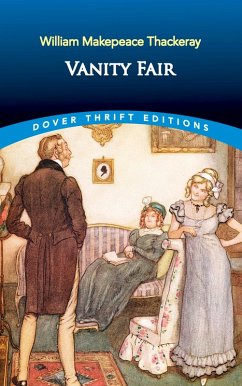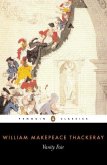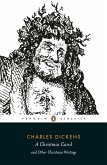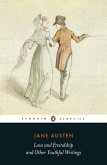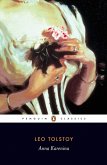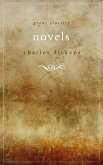Subtitled "a novel without a hero," Vanity Fair offers an acidly satirical romp across all levels of English society during the Napoleonic wars. William Thackeray focuses on how the war affects people other than soldiers, the typical heroes. All of his characters are deeply flawed, from social climber Becky Sharp and sweet Amelia Sedley to caddish George Osborne and loyal William Dobbin. Becky, liar and hypocrite, takes center stage as one of literature's great female protagonists. Penniless, armed with only her beauty, charm, and cunning, she claws her way forward by practicing the corrupt principles of her world. Becky seduces her enemies and betrays friends with a charismatic energy that has captivated generations of readers. Regarded as Thackeray's best novel and masterpiece, Vanity Fair was published in serial form in 184748 in Punch and established the author's literary reputation as well as his social status and financial security. Critic A. E. Dyson acclaimed it as "one of the world's most devious novels, devious in its characterization, its irony, its explicit moralizing, its exuberance, its tone. Few novels demand more continuing alertness from the reader, or offer more intellectual and moral stimulation in return." Dover (2016) republication of the edition originally published by the Oxford University Press, London and New York, 1908. See every Dover book in print at www.doverpublications.com
Dieser Download kann aus rechtlichen Gründen nur mit Rechnungsadresse in A, D ausgeliefert werden.
"I do not say there is no character as well drawn in Shakespeare [as D'Artagnan]. I do say there is none that I love so wholly."
--Robert Louis Stevenson
"The lasting and universal popularity of The Three Musketeers shows that Dumas, by artlessly expressing his own nature in the persons of his heroes, was responding to that craving for action, strength and generosity which is a fact in all periods and all places."
--Andreé Maurois
--Robert Louis Stevenson
"The lasting and universal popularity of The Three Musketeers shows that Dumas, by artlessly expressing his own nature in the persons of his heroes, was responding to that craving for action, strength and generosity which is a fact in all periods and all places."
--Andreé Maurois

William Makepeace Thackeray "Jahrmarkt der Eitelkeit"
In diesem berühmtesten seiner Romane (später hat er wohl noch bessere geschrieben, aber andrerseits keinen mehr mit einem so großartigen Titel: "Jahrmarkt der Eitelkeit" - ein Weltentwurf in einem Wort) schildert William Thackeray die Lebenswege zweier junger Frauen aus der besseren Gesellschaft: Die eine hat einen schönen Charakter, eine mitfühlende Seele, und wenn das Schicksal ihr nicht wohlwill, wartet sie bescheiden ab, und der Autor liebt sie. Die andre ist brillant und schön, sie setzt sich um jeden Preis durch, und wenn jemand gegen sie ist, sucht sie sich als Abenteurerin den Weg zu den Zielen, die sie will, und Thackeray wäre ein übler Autor, wenn er sie nicht liebte, und dafür wieder lieben wir ihn, fast noch mehr als vorher, denn das war kein Kunststück. Mehr aber liebt Thackeray (er lebte von 1811 bis 1863, er hat als junger Mensch den alten Goethe besucht und ihn gezeichnet, später konnte er sich nicht recht damit abfinden, daß nun Eisenbahnen fuhren, wo er noch Kutschen benutzt hatte) doch die stille Schönheit, den inneren Glanz: und mit unendlicher Gelassenheit kundschaftet er nun für uns und besonders eben für die demütig-liebe Amelia aus, wie Gott es wohl fertigbringt, daß zwar das Böse Raum in der Welt gewinnt, das Gute aber auch nicht untergeht (Thackeray war ein Schiller-Fan). Becky, die schöne Abenteurerin, erbt und kriegt schließlich, was sie will, Amelie, die liebe Gute, verliert zwar ihren Mann, der ohnehin ein Schuft war, kriegt dafür aber ihren treuesten Anbeter, einen etwas älteren Typ, aber mit Seele. Dickens, der ebenfalls diesen Hang zu blonder Seelenschönheit hatte, ging seit diesem Buch ein wenig auf Distanz zu seinem Freund: Er gönnte ihm Erfolg, gewiß, aber nicht so einen gewaltigen, fast schon gottlos ihm abträglichen womöglich. (William Makepeace Thackeray: "Jahrmarkt der Eitelkeit". Ein Roman ohne einen Helden. Aus dem Englischen übersetzt von Elisabeth Schnack. Mit 188 Illustrationen des Autors. Manesse Verlag, Zürich. 1155 S., geb., 52,20 DM; auch im Insel Verlag, herausgegeben von Norbert Kohl unter Zugrundelegung einer Übersetzung aus dem Nachlaß von Röhl, Frankfurt am Main 1980. 1166 S., br., 38,80 DM). R.V.
Alle Rechte vorbehalten. © F.A.Z. GmbH, Frankfurt am Main

